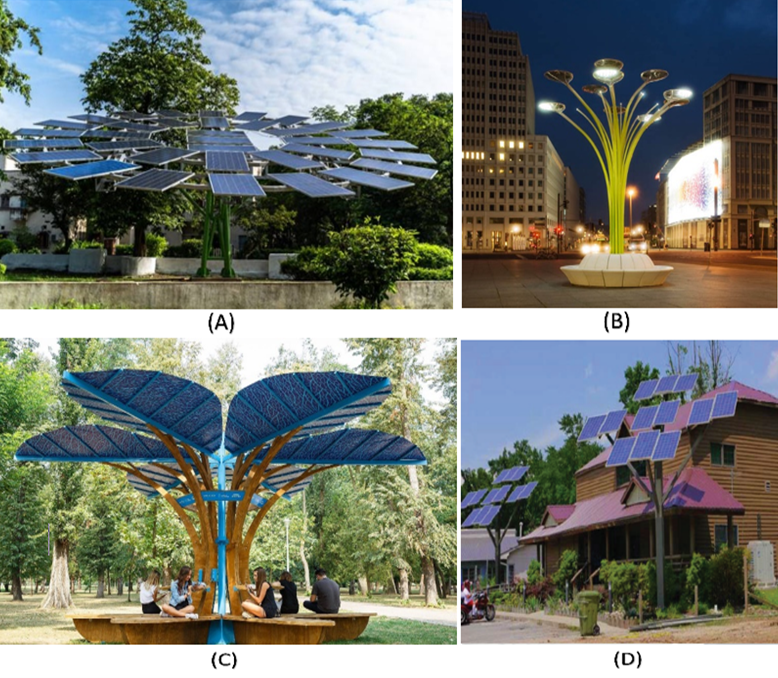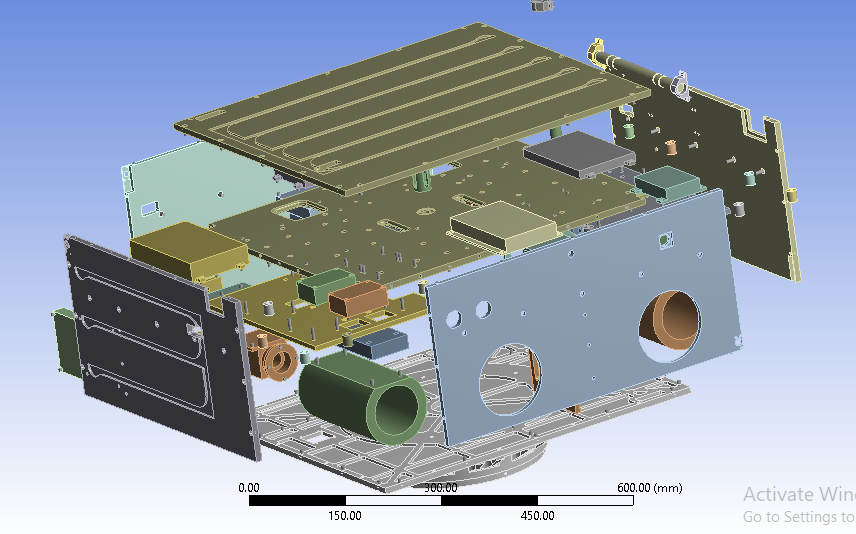
Research Project
Sugarcane Bagasse Recycling for Wood-Based Panels
Abstract The project explores the recycling and reuse of organic waste fibers sugarcane bagasse (SCB). The project investigates the chemical, physical, and mechanical properties of SCB, its production percentage in Egypt, and particle board production from SCB. The project investigates the mechanical properties of a composite material made from sugar cane and epoxy. The addition of epoxy resin

Research Project
Developing a Floating Robot for Mechanical Control of Water Hyacinth
Abstract Water hyacinth has become widespread in freshwater bodies in several countries, leading to various issues, particularly its substantial water consumption and the resulting need to control its growth. Among the different methods of controlling water hyacinth, mechanical control stands out as the most effective and environmentally friendly approach. A proposed harvester robot has been

Research Project
Managing and Recycling Water Hyacinth: Challenges, Methods, and Benefits
Abstract Water hyacinth, an invasive aquatic plant, poses significant challenges to water bodies worldwide. Control methods include mechanical removal, biological suppression using naturalenemies, and chemical use of targeted herbicides. Integrated approaches that combine multiple methods have proven successful in managing water hyacinth infestations. Benefits include restoring water flow

Research Project
Observer-Based Adaptive Event-Triggered Fractional-Order Sliding Mode Control Using Online Fractional-Order Learning Approach
Abstract This project introduces an innovative adaptive event-triggered control strategy (ETS) for networked uncertain nonlinear systems with unmeasured states. The proposed method, called ETFFSMC-FAC, combines a fractional-order fuzzy sliding mode controller with a fractional-order actor-critic (FAC) approach. Initially, unmeasured states are estimated using a sigma-point Kalman filter (SKF)

Research Project
Fractional-order Fuzzy Sliding Mode Control of Uncertain Nonlinear MIMO Systems Using Fractional-order Reinforcement Learning
Abstract This project presents a novel approach to enhance the control performance of unknown multiple-input and multiple-output (MIMO) nonlinear systems. The proposed method integrates a fractional-order fuzzy sliding mode controller with online fractional-order reinforcement learning (FOFSMC-FRL). The controller utilizes two Takagi–Sugeno–Kang (TSK) fuzzy neural network actors to approximate the

Research Project
Optimal Fractional-Order PID Controller based on Fractional-Order Actor-Critic Algorithm
Abstract This project proposes an online optimization approach for a fractional-order PID controller using a fractional-order actor-critic algorithm (FOPID-FOAC), aiming to enhance the performance of nonlinear systems. The FOPID-FOAC scheme combines the advantages of fractional-order PID controllers and actor-critic reinforcement learning algorithms. The proposed FOAC algorithm employs fractional

Research Project
Optimization of Solar Tree Performance in Egypt: A Simulation-Based Investigation
Abstract This project explores the optimization of solar tree performance in Egypt through the orientation and positioning of solar panels. Solar energy is a crucial and abundant resource in Egypt, and the paper proposes the use of solar trees as a promising solution to harness this energy efficiently. The design process involves two main aspects: optimizing the orientation of solar panels and

Research Project
Wind Turbine Aeroelastic Analysis and Design
As a result of the high demand for clean and sustainable energy resources, increasing the rotor diameter and tower height is the trend of development to capture more energy from the wind. The long flexible blades are sensitive to any vibrations; therefore, the flutter analysis of wind turbine blades became highly required. A lot of research work has been dedicated to studying the flutter phenomena

Research Project
Satellite Analysis and Design
The parametric design and optimization of the satellite composite laminated plates with conventional stacking sequence under static load. We create finite element code using MATLAB software to calculate the deformation of the composite satellite plate. The model has been created to study the effect of changing fiber orientation on the displacement of the composite satellite plate. The MATLAB code

Research Project
Cost-Effective Desalination by Falling-Film Freeze-Concentration with Minimal Environmental Impact
Water resource management is critical for sustainable social development in Egypt amid growing consumption and limited resource options. Recent national water plans have emphasized the strategic rule of nonconventional water supply through desalination. On the other hand, conventional desalination methods have a severe environmental impact due to increases in the temperature and salinity of the
